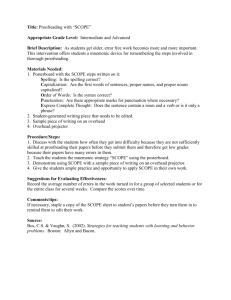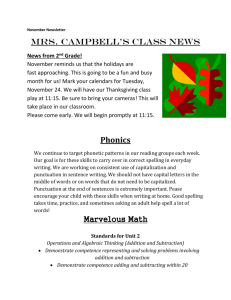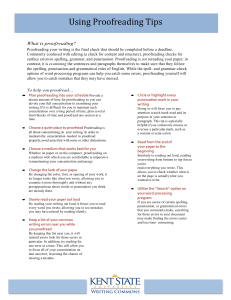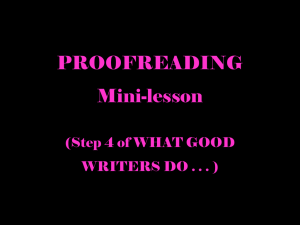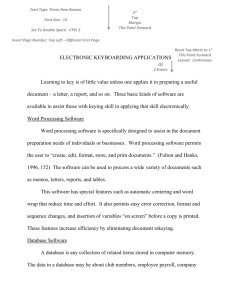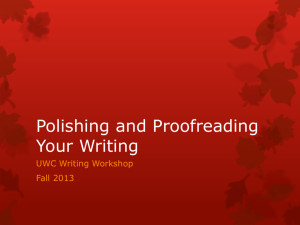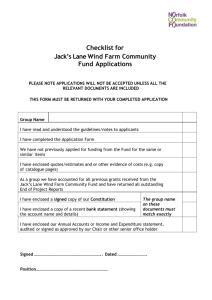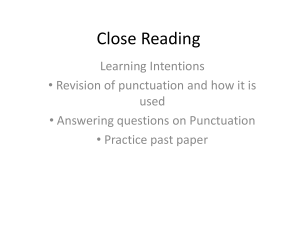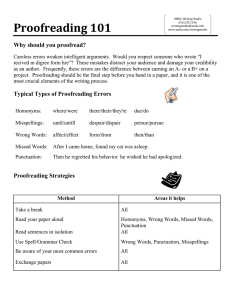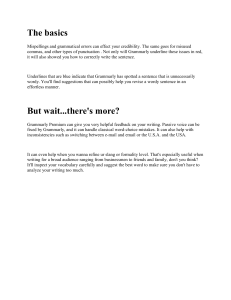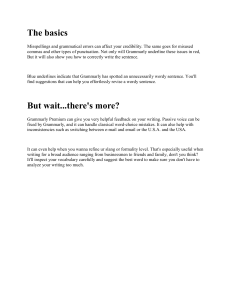Revising and Proofreading Business Messages
advertisement
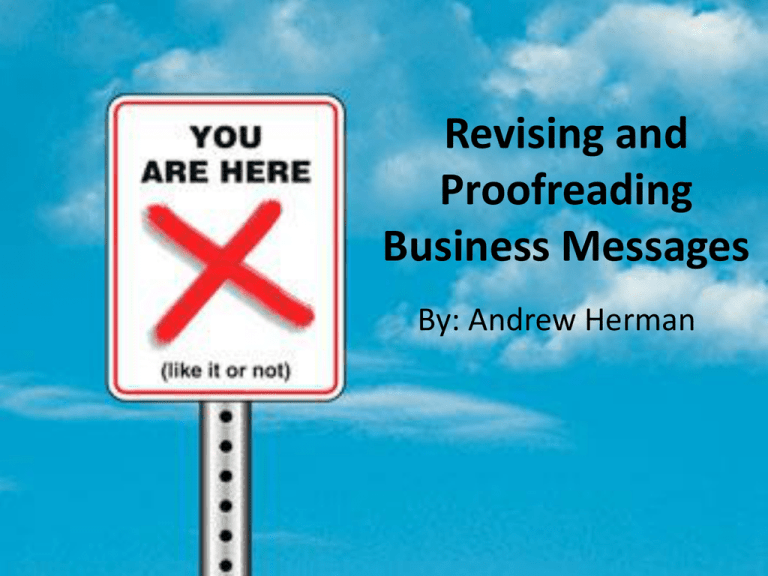
Revising and Proofreading Business Messages By: Andrew Herman Techniques of writing Techniques of reading Knowing where mistakes are Understanding punctuation marks FLABBY At a later date At this point in time Afford an opportunity Are of the opinion The present time Due to the fact that During the time Feel free to For the period of CONCISE Later Now Allow Believe, think that Now, presently Because While Please for Long lead-ins have to much information that is useless • Ex.. Wordy- this email message is being sent to all of you to let you know that new parking permits will be issued January 1. Concise- new parking permits will be issued January 1. OUTDATED EXPRESSION ARE IN RECEIPT OF AS PER YOUR REQUEST ATTACH HERETO ENCLOSED PLEASE FIND PURSUANT TO YOUR REQUEST THANK YOU IN ADVANCED I TRUST THAT UNDER SEPARATE COVER MODERN PHRASES HAVE RECEIVED AT YOUR REQUEST ATTACHED ENCLOSED IS/ARE AT YOUR REQUEST THANK YOU I THINK, I BELIEVE SEPARATELY If these adverbs are taken away you sound more business like and more credible. • Wordy- we actually didn’t give his proposal a very fair trial. • Concise- we did not give his proposal a fair trial. Fatten sentence Begin an Idea with there is Take up space Fillers are some what unnecessary in certain places Words to avoid Shortens a message Improves readability Substituting pronouns Replace words used to much More than is needed, desired, or required Can be seen as professional Traced to be 14th century old French Meaning twittering An outlandish, technical language of a particular profession, group, or trade Slang is compsed of language that go out of style right away No longer appealing Out of fashion Clichés are the old coins of language: phrases that once made a striking impression but have since been rubbed smooth by repeated handling. Gives a precise definition In stead of saying “contact you” you say I will telephone, fax, e-mail, visit Needlessly Converted to wordy nouns Check page 86 Highly descriptive Dynamic Don’t over use these More concrete Don’t use to many what to what for proof reading • Spelling • Grammar • Punctuation • Names and numbers • Format Read carefully Double words Spell checker Find errors and the tones Read every line twice standard proofreading marks Print a copy double spaced Time to proofread adequately Be prepared to find more than usual errors Read document at least 2 times Reduce your reading speed Have someone to read the document outloud writingforward.com english.udel.edu stf.lea.org iowapages.org……. Includes vivid verbs www.grammarly.com scottbush.net thesebastards.blogspot.com

